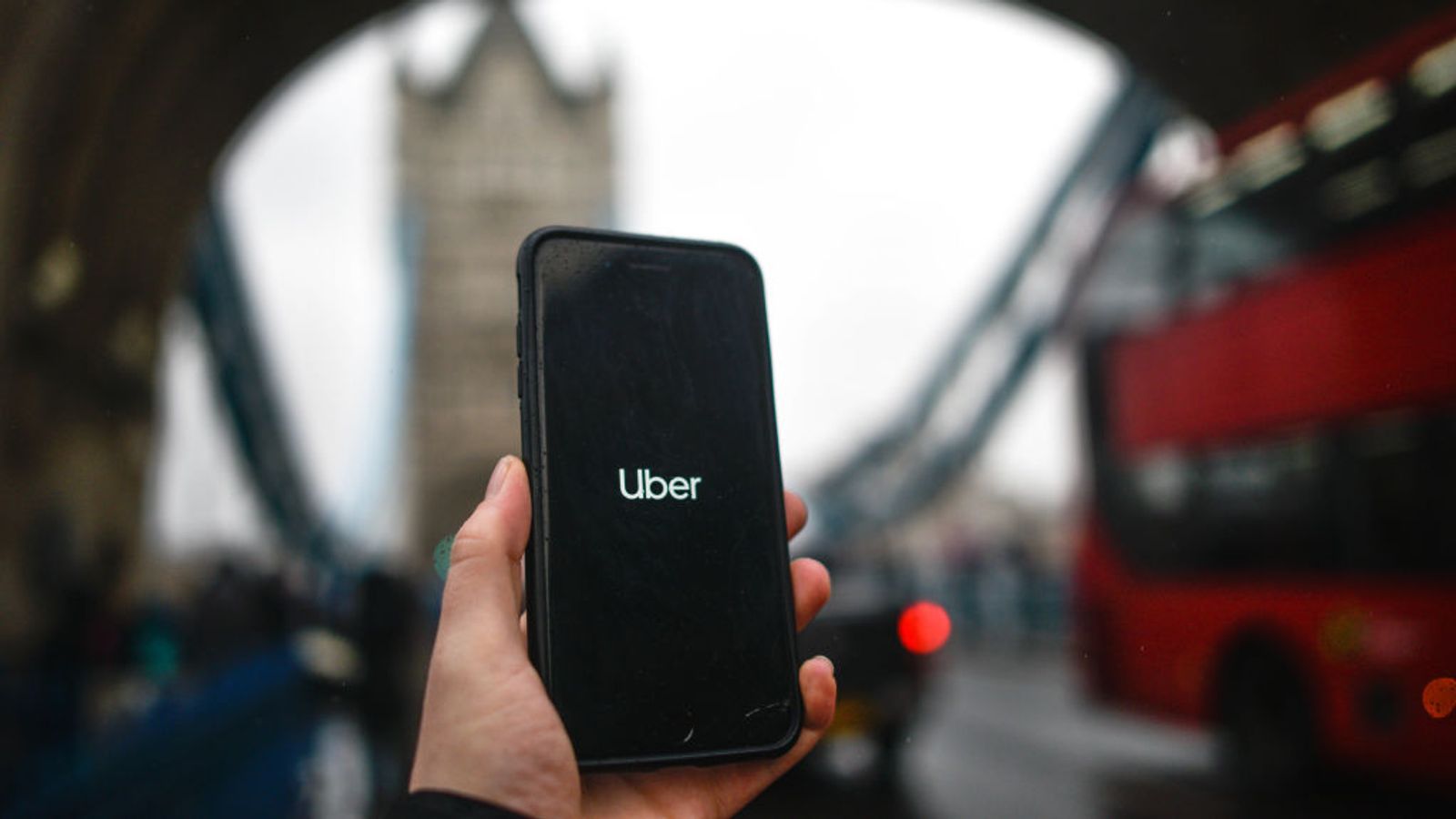Uber is to treat its 70,000 drivers in the UK as workers, meaning they will be entitled to a number of basic employment protections.
The ride-hailing app lost a Supreme Court case last month, with a judge ruling that drivers should be classed as workers, not as independent third-party contractors.
This means they have access to holiday pay and a pension scheme, as well as earning at least the minimum wage, starting from Wednesday.
Minimum wage is currently £8.72 per hour for those aged 25 and over, although it will increase to £8.91 per hour for everyone aged 23 and over from April.
The holiday pay will be paid fortnightly and based on 12.07% of the worker’s earnings, while the automatic enrolment into a pension plan will include employer contributions.
Workers are a distinct group in the UK and are entitled to fewer rights than full employees, who are guaranteed sick pay and parental leave, but Uber says its drivers have had free insurance to cover sickness, injury, and parental leave since 2018.
Uber said the court ruling had “provided a clearer path forward as to a model that gives drivers the rights of worker status while continuing to let them work flexibly”.
Jamie Heywood, Uber’s regional general manager for Northern and Eastern Europe, said: “This is an important day for drivers in the UK.
“Uber drivers will receive an earnings guarantee, holiday pay and a pension, and will retain the flexibility they currently value.
Please use Chrome browser for a more accessible video player
“Uber is just one part of a larger private-hire industry, so we hope that all other operators will join us in improving the quality of work for these important workers who are an essential part of our everyday lives.”
The Silicon Valley-based company said its drivers in London earn an average of £17 an hour (£14 in the rest of the UK) and that the minimum wage entitlement would be “a floor and not a ceiling”.
Frances O’Grady, general secretary at the Trades Union Congress, said: “Gig economy workers deserve to be treated with dignity at work, and to be given the same basic rights as everybody else.
“We will check the small print of this offer. But this appears to be a big step in the right direction from Uber.
“Now the company must recognise trade unions. The TUC stands ready to host talks with Uber and private hire unions to begin that process.”
It’s not the first time Uber has been in court over the status of its drivers.
Last year the top court in France recognised the right of an Uber driver to be considered an employee.
The European Union is considering new rules to protect gig economy workers.
Susannah Streeter, senior investment and markets analyst at Hargreaves Lansdown, said Uber’s reclassification of its drivers would “reverberate through the entire gig economy”.
“It has become clear that the Supreme court’s decision last month steered Uber into a dead end in its fight to keep those behind the wheel on self-employed contracts. It is likely that other operators will now be forced to reassess the employment status of the drivers they have relied on to develop lucrative businesses.
“The company has reversed on its previous position of claiming that the ruling only applied to a limited number of drivers who had brought the case. Throwing in the towel is likely to come at a significant cost to the company.”
Uber’s share price fell by just under 1% in after-hours trading in New York, as investors digested the implications of the decision.
Mr Heywood will be a guest on Sky’s Ian King Live at 10am on Wednesday, 17 March






















